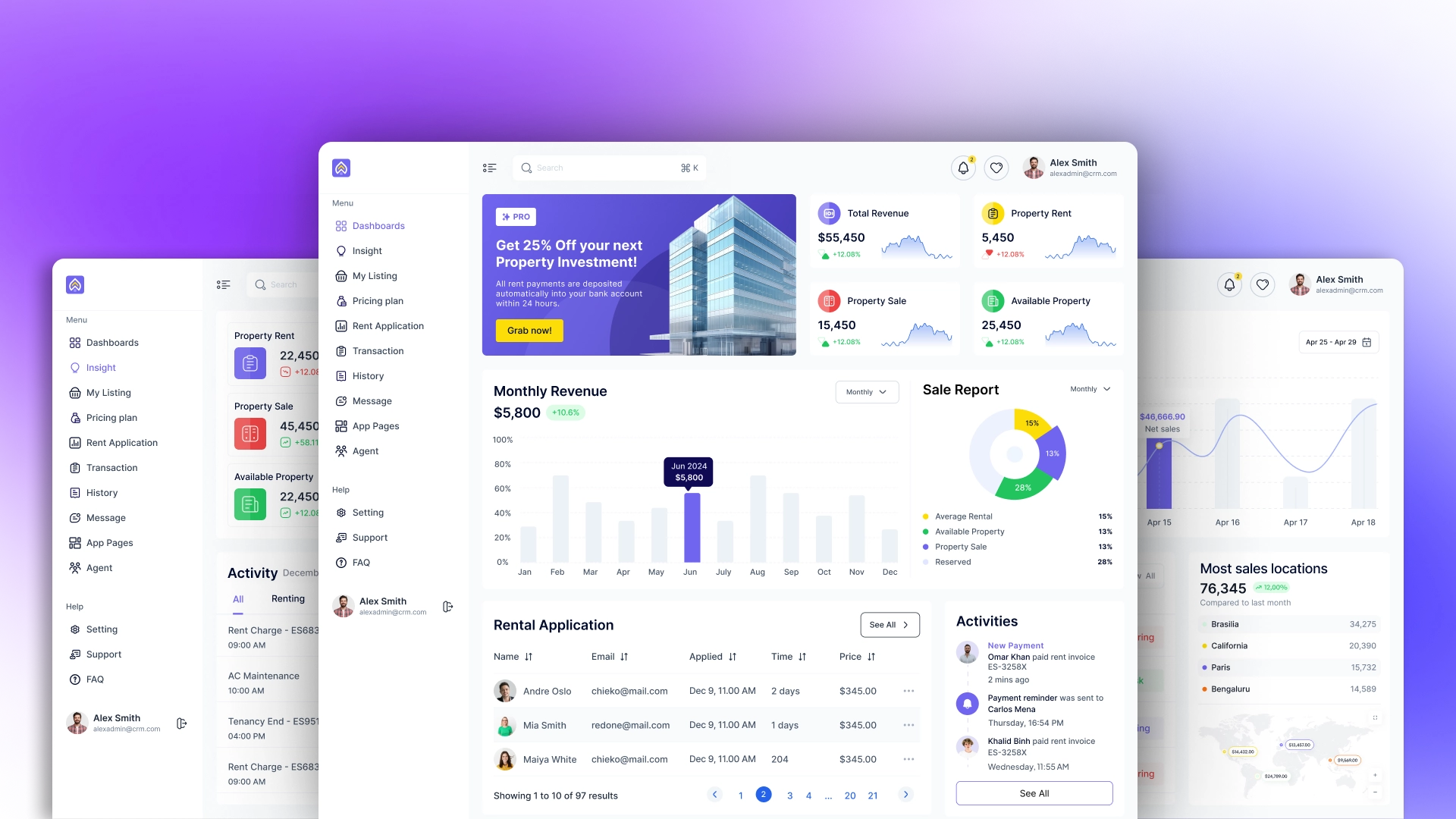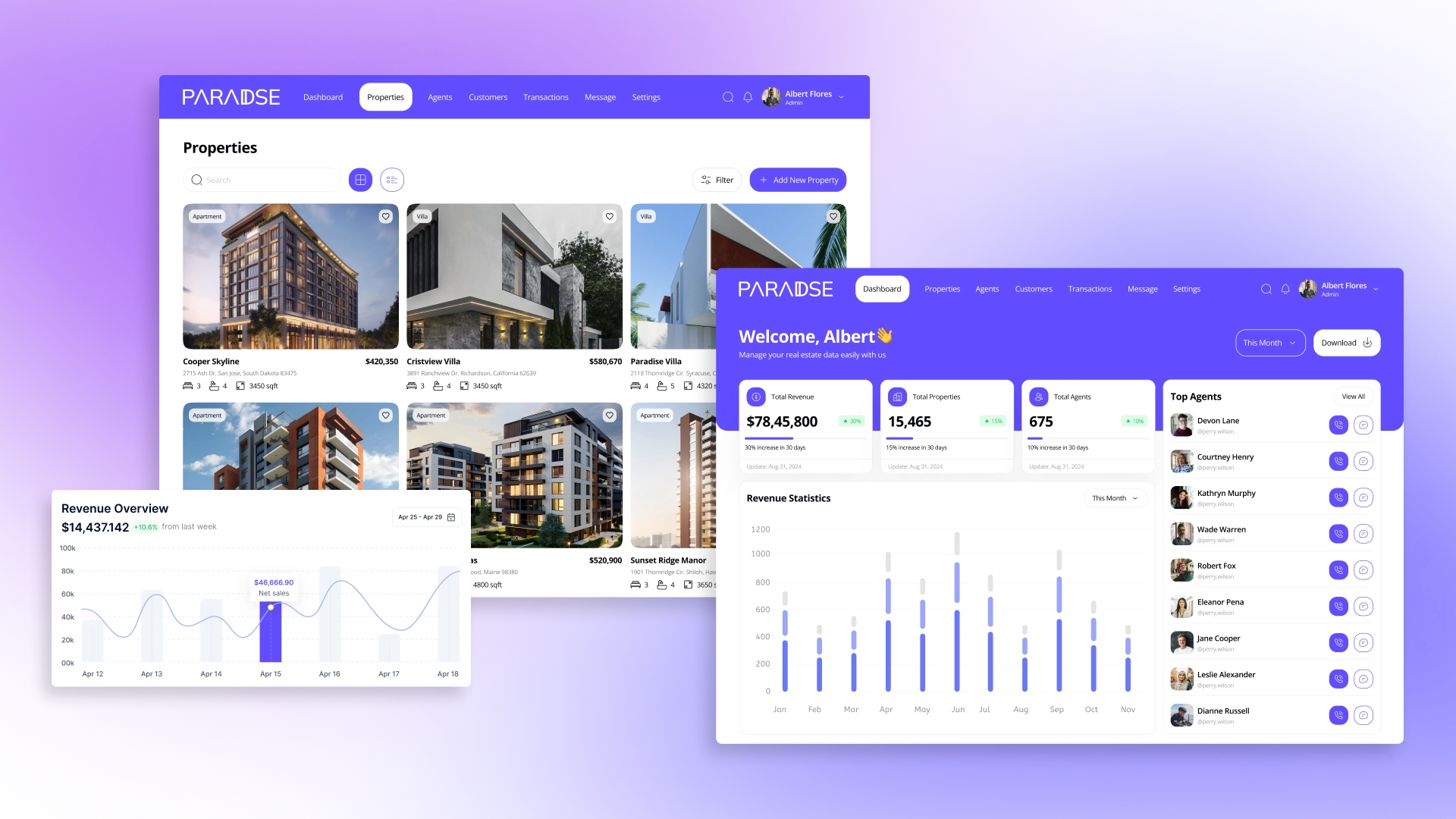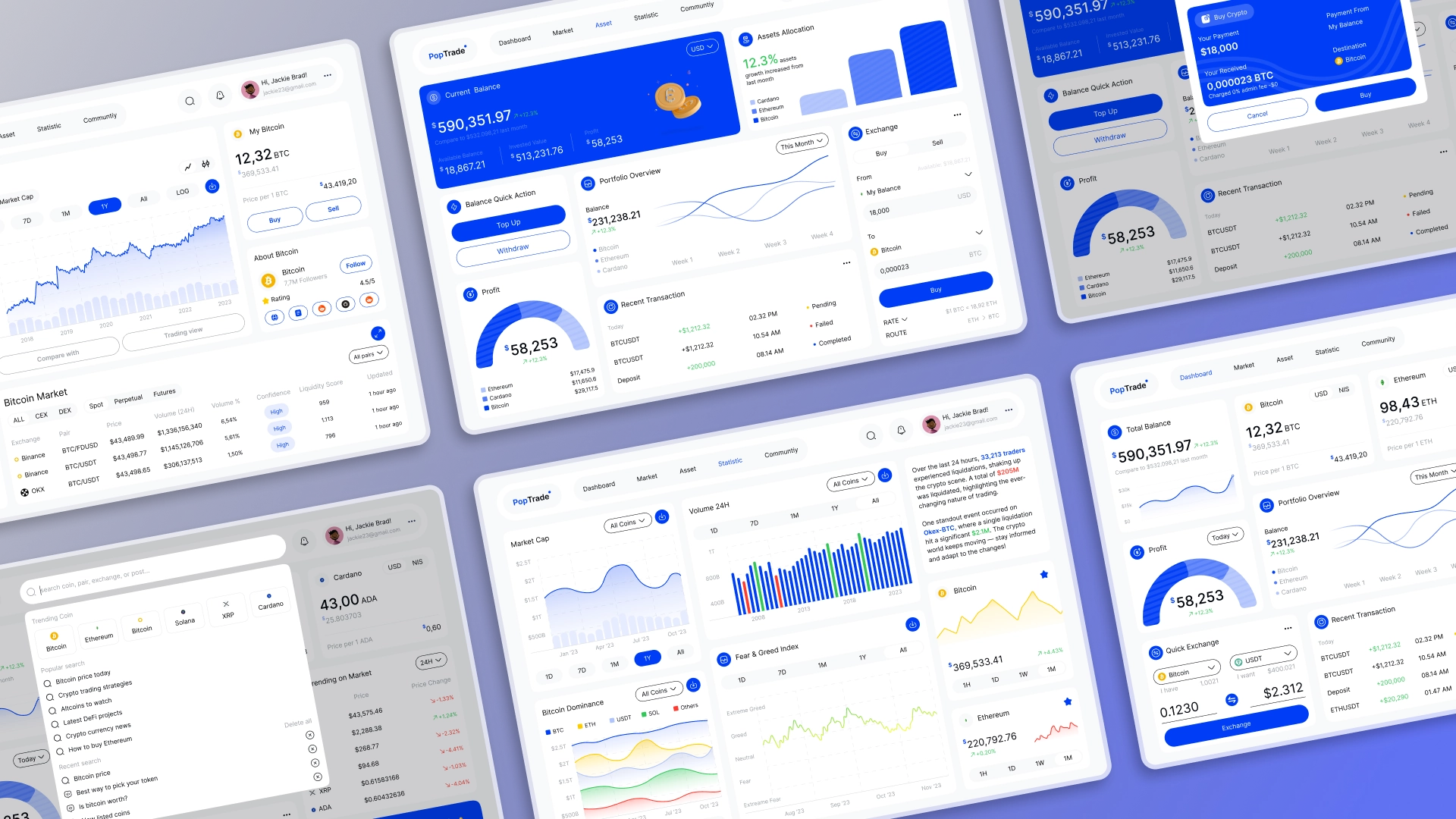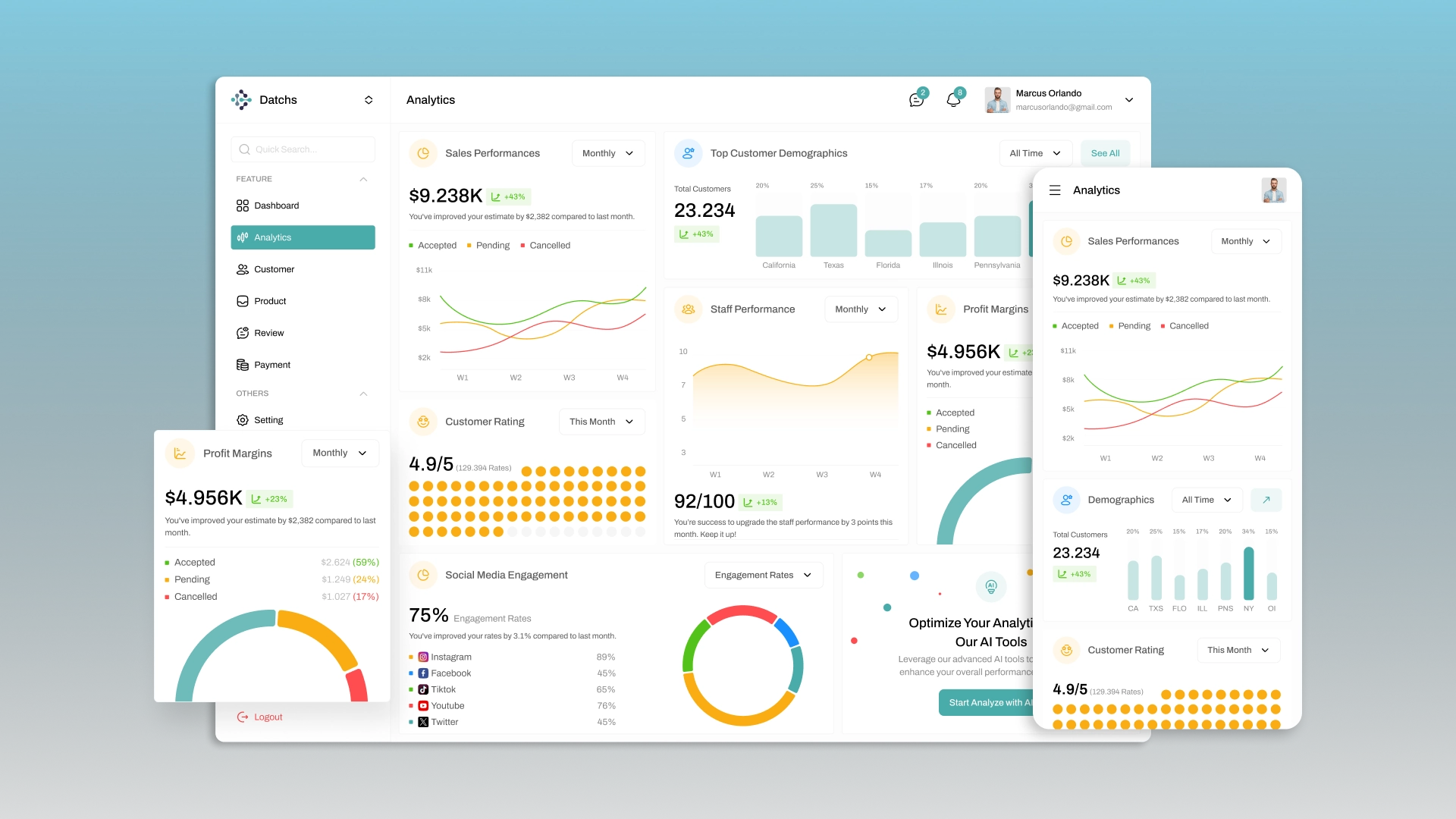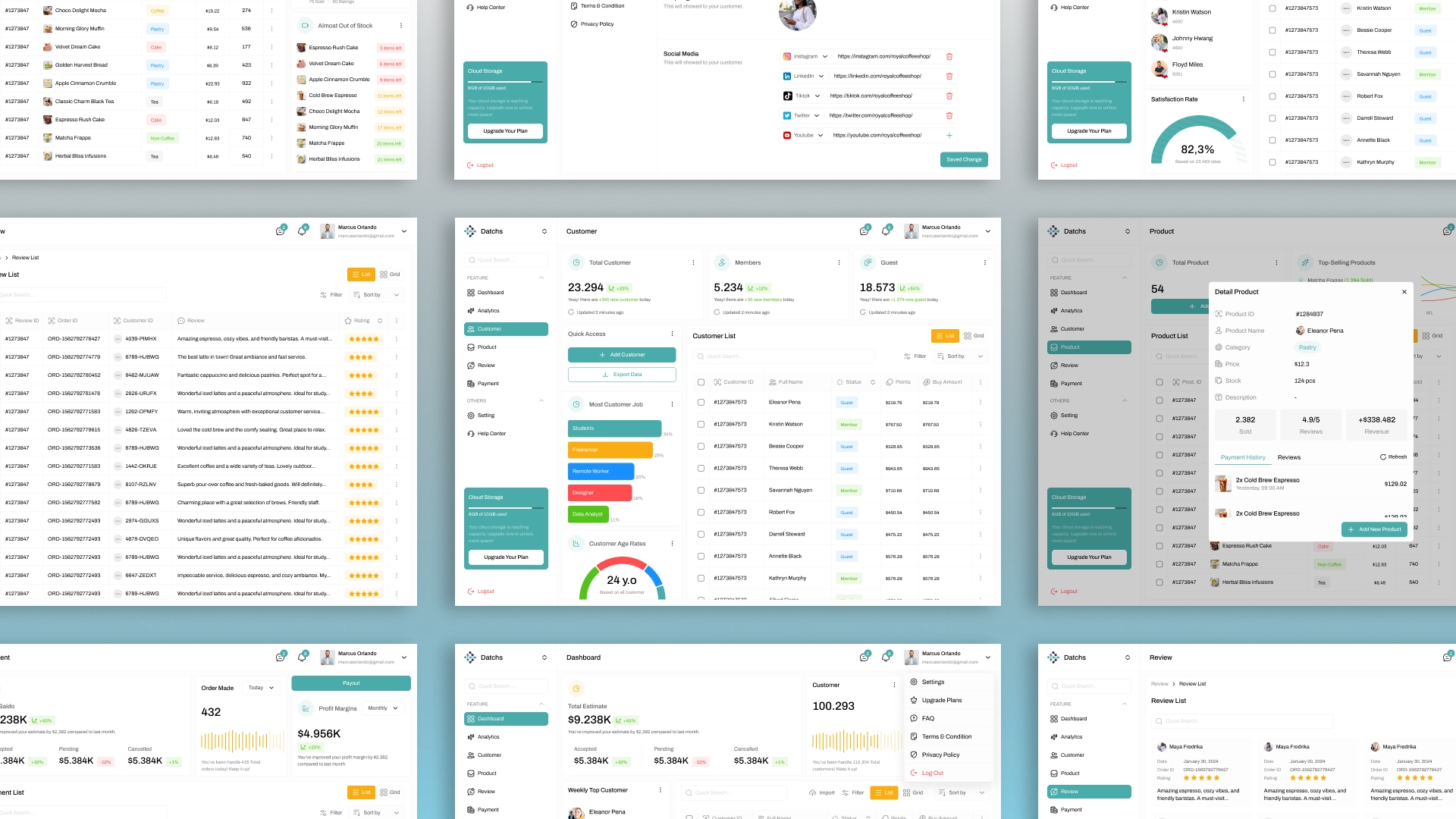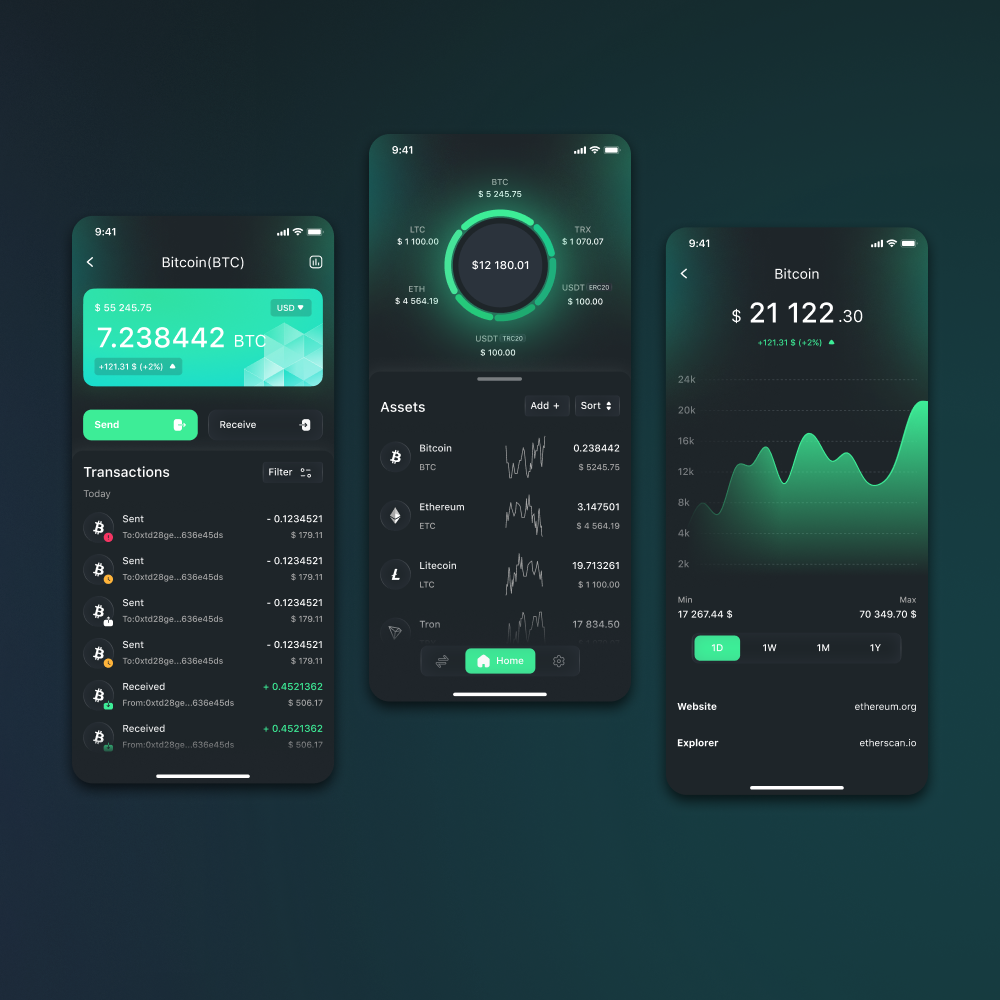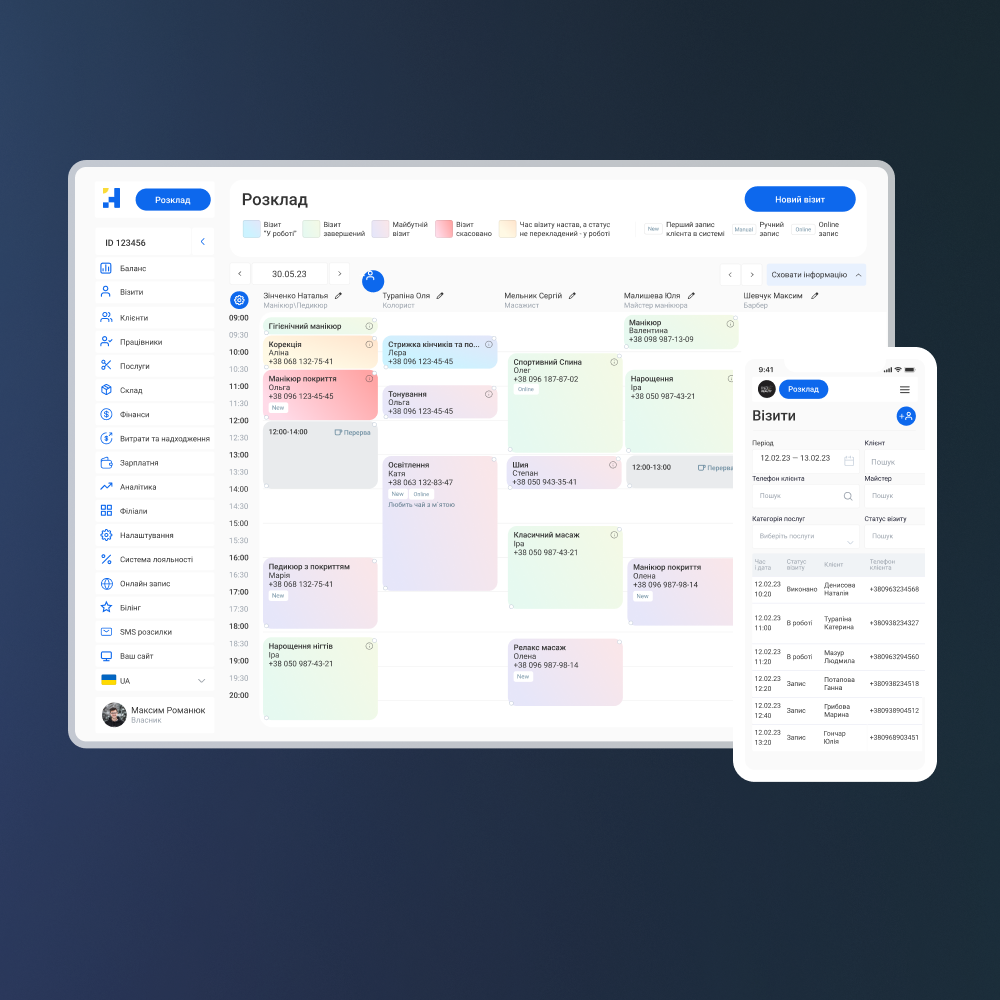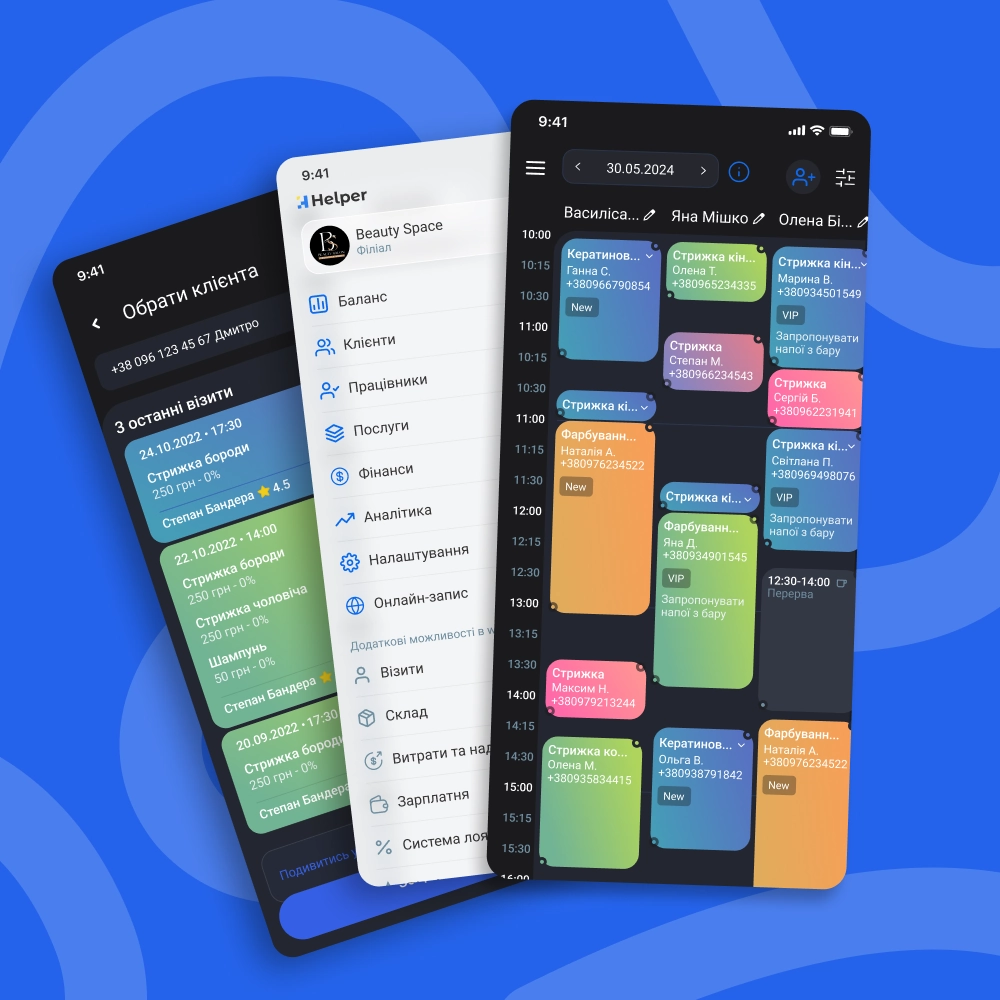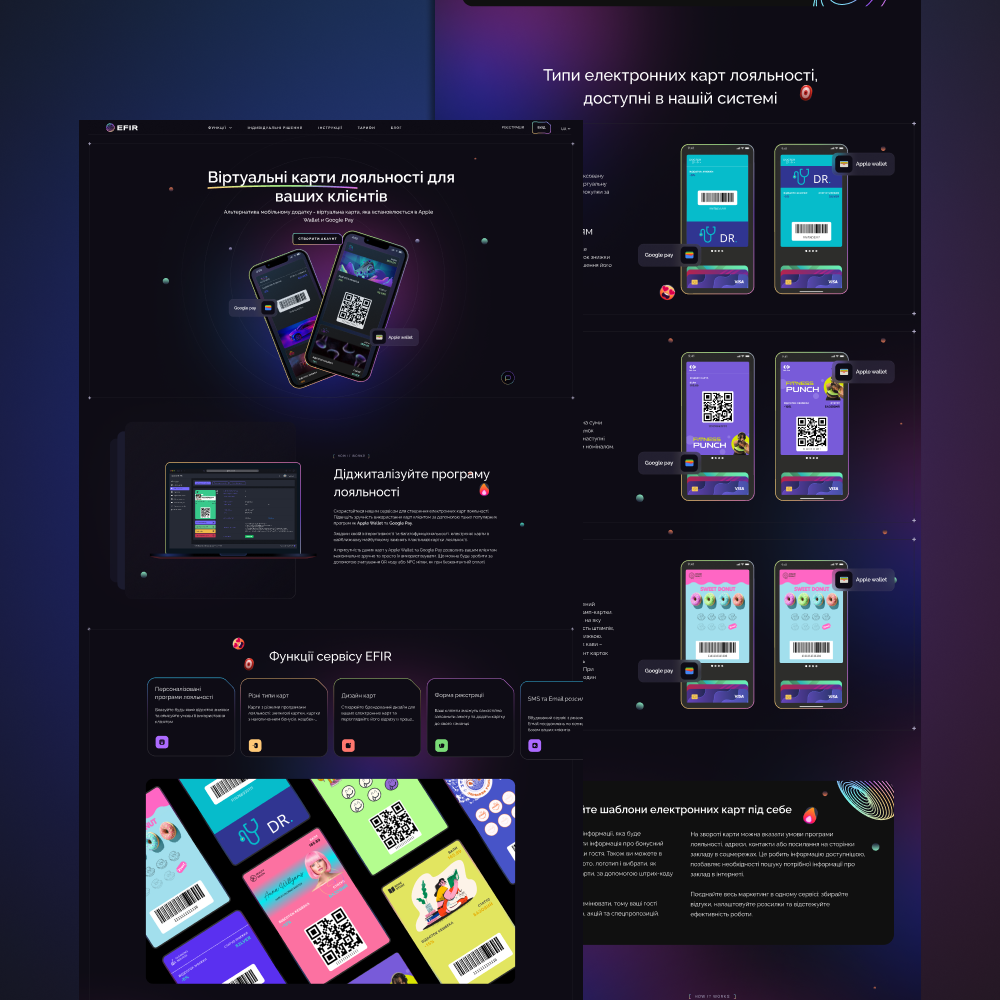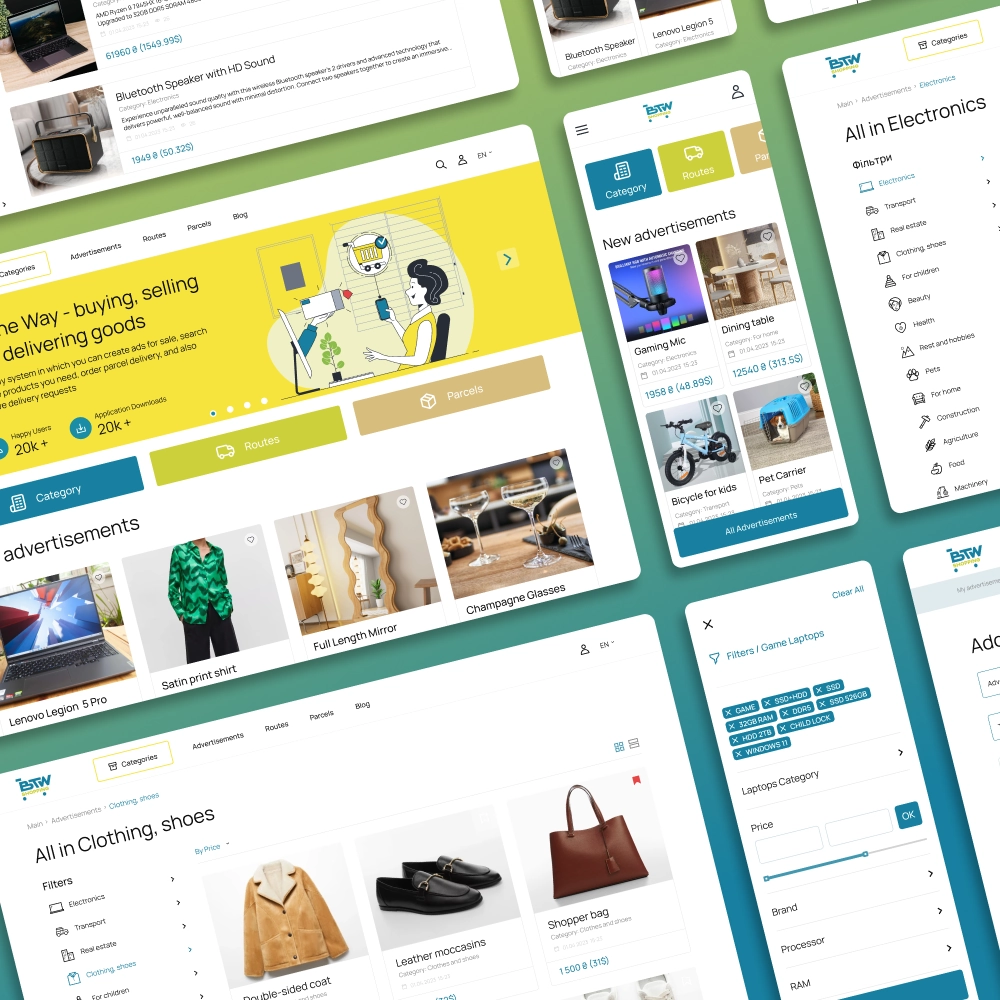








Development of a CRM system for construction companies
Construction is a complex and specific industry. In order to successfully develop in it, a company must not only have excellent professional skills, but also effectively solve current problems: manage projects, clients, resources and suppliers, as well as build interaction between different teams. This is where the question of implementing a CRM system for construction arises - specialized software that helps to bring order to processes and promotes business development.
At AVADA MEDIA, we create customized CRMs that take into account not only the general needs of the construction business, but also the specifics of your company. Our solutions help optimize interactions with clients, leads, contractors, and other project participants, allowing your company to confidently expand in a competitive market.
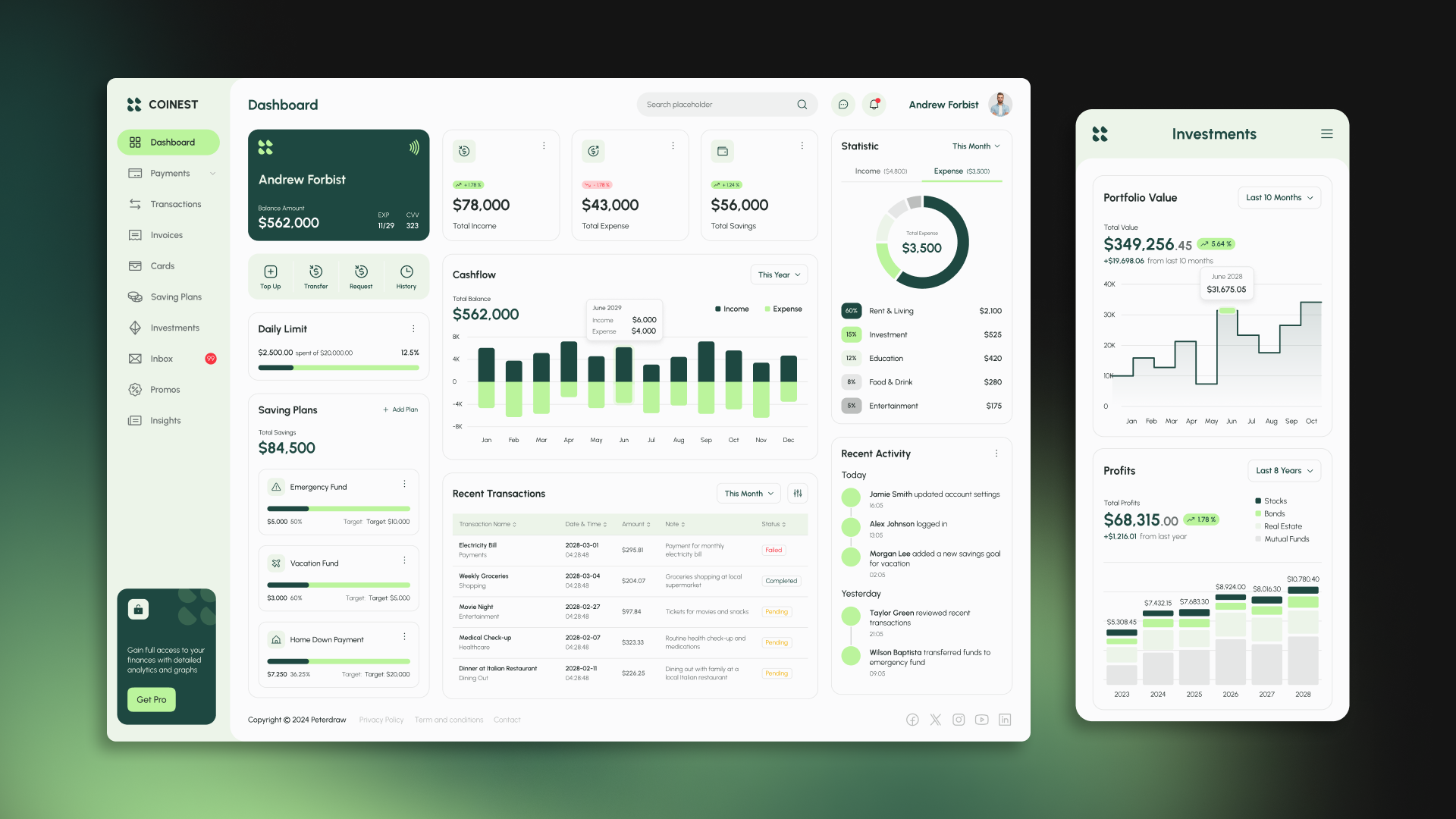
What tasks can CRM solve for construction?
CRM systems for construction companies help solve many problems related to automation and management of business processes. We suggest considering the main ones:
- Client and Lead Management . Simplifies work with clients by combining all information in a single database. It records contacts, maintains a history of interactions and helps automate the processing of applications, which makes the process of working with clients more structured and efficient.
- Project control . Allows the company to control the implementation of projects at all stages of construction, including budgeting, resource allocation, assignment of responsible employees and tracking deadlines. This increases the likelihood of timely completion of work and reduces the likelihood of errors.
- Resource and supply management . Helps to track the status of resources, plan their use, coordinate the supply of materials and control interaction with contractors. Thanks to this, the company can avoid shortages or overspending of construction materials and equipment.
- Document flow and reporting . Centralizes and standardizes work with documentation, and also provides convenient storage of contracts and reports. In addition, it allows you to automatically generate standard documents: estimates, contracts, drawings, etc., which speeds up decision-making and simplifies administrative processes.
- Optimization of communications . Combines all communication channels - telephony, email and messengers on a single platform, thereby simplifying the interaction between all participants in the construction process. This makes communication as transparent and convenient as possible, and also provides quick access to the history of interactions.
- Analytics and forecasting . Provides analytical data on the company's operations, employee efficiency and project profitability. Based on this information, the company's management can plan effective development strategies, forecast demand and make informed management decisions.
How CRM systems work for construction companies
The principle of operation of CRM for a construction company is to integrate all processes into a single platform. And despite the fact that the tasks of different systems may differ, depending on the specifics of each specific business, in general, the principle of their operation looks like this:
- Receipt of a request. The company receives a new request from a client. CRM automatically records the source of the request — a website, phone, social networks or an offline channel, adds the client’s data to the database and assigns a responsible manager.
- Launch of interaction scenario. After the first contact, CRM automatically creates a project card and launches a sales funnel, which helps the manager successfully sign a contract with a potential customer.
- Project management. After the project is launched, the system helps to organize effective process management. To do this, it stores data on the execution of tasks, their deadlines, the use of resources, the supply of materials and the observance of deadlines.
- Document management. CRM takes care of document processing and storage. It automatically generates contracts, acts and invoices, provides access to estimates and technical documentation. This allows employees not to waste time searching for or creating documents manually.
- Resource monitoring. CRM tracks the availability and use of construction materials, equipment and personnel, which helps to optimally plan purchases, prevent downtime and control expenses within the approved budget.
- Analysis and reporting. After the project is completed, CRM generates detailed reports that contain data on costs, deadlines, employee efficiency, and profitability. This information helps evaluate success and adjust the company's strategy.
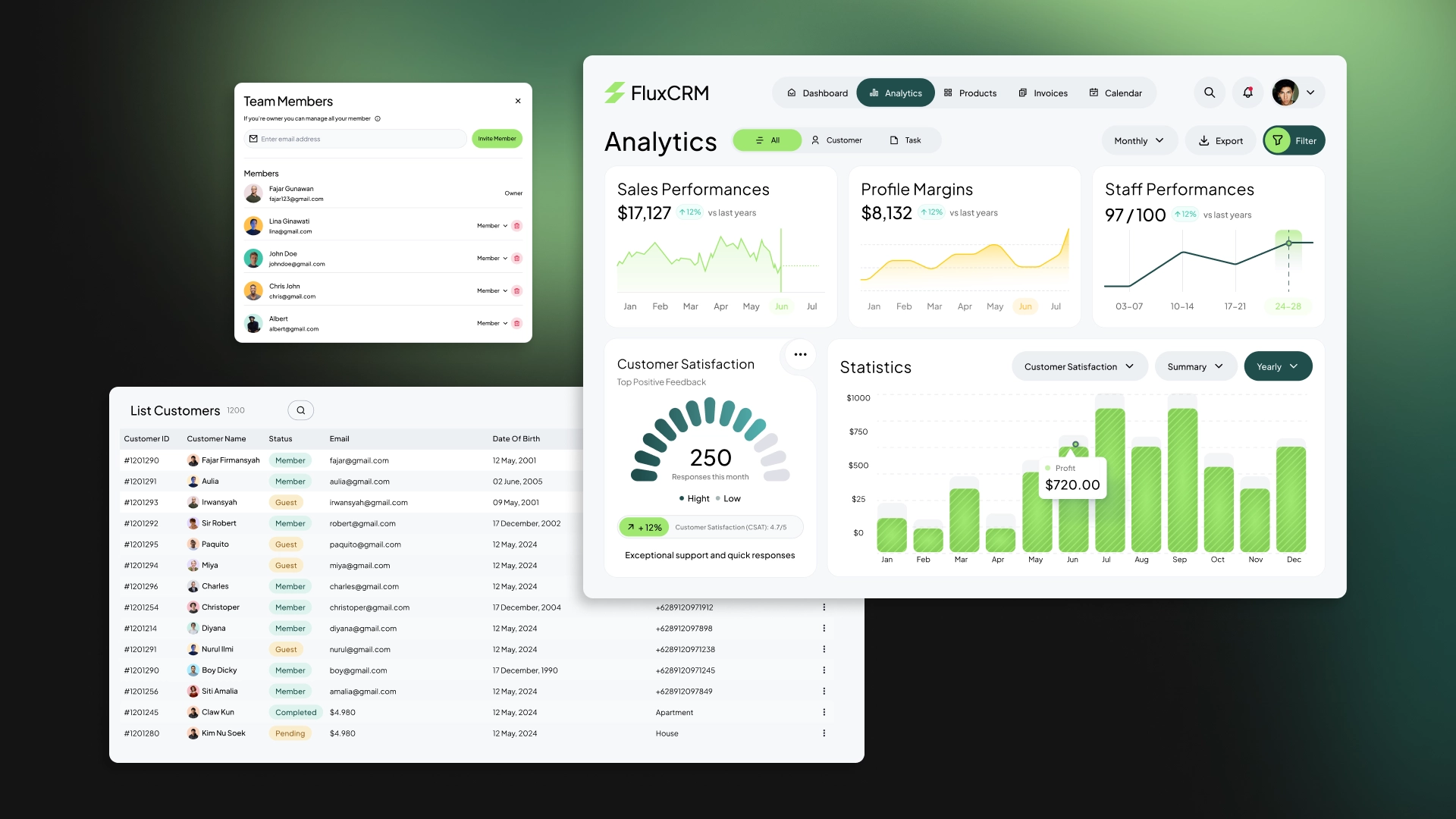
Benefits of implementing CRM systems for construction companies
Implementing a CRM system allows construction companies to make complex processes transparent and manageable, optimize resources and improve customer service. Let's look at what benefits they can bring to your business:
- Optimizing costs and increasing efficiency. Automating routine processes allows you to reduce operating costs, reallocate resources to more important tasks, and speed up project execution. This allows the company to successfully expand without significantly increasing costs.
- Increase revenue through personalization. A single database with customer information allows you to build more trusting and individualized relationships with customers. As a result, a personalized approach helps to more accurately identify the needs of potential customers, increases their loyalty and promotes sales growth.
- Improved teamwork. Integrating data from different departments improves coordination and consistency among employees. This helps avoid duplication of tasks and simplifies project management, increasing overall team productivity.
- Access to information at any time. Mobile capabilities of CRM systems allow employees to stay in touch anywhere, regardless of where they are - in the office or on construction sites. Access to information at any time allows you to quickly make informed decisions, promptly respond to changes and ensures uninterrupted project implementation.
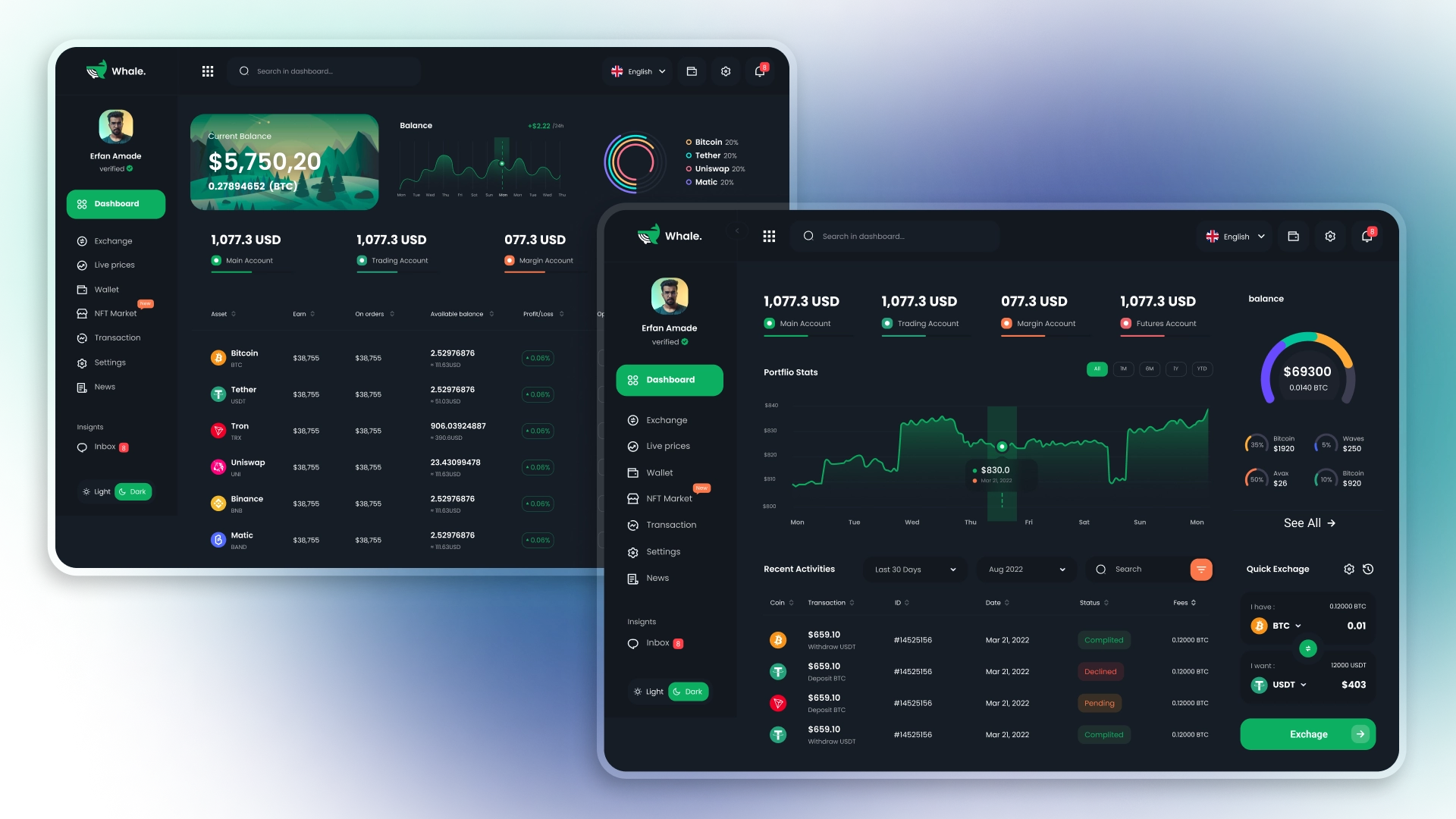
Main functional capabilities of CRM systems for construction companies
Construction CRMs provide a variety of tools that help companies organize their work, improve customer interactions, and increase efficiency. Let's look at some of the key modules that we recommend integrating into such a system.
Managing clients and contacts
The module provides centralized storage of data on clients, contractors and partners, which helps the company better understand its customers and build long-term relationships.
Benefits for business:
- Quick access to complete information about the client: contacts, interaction history, etc.
- Convenient integration with instant messengers, email and telephony for prompt communication.
- The ability to personalize service, increase customer loyalty and speed up the sales process.
Project Management
Systematization and control of construction projects within a single platform allows the company to avoid mistakes and meet deadlines.
Why is it worth integrating the module:
- Improves transparency of task execution and ensures that deadlines are met at every stage of the project.
- Increases the efficiency of resource allocation, which reduces the risk of downtime and cost overruns.
- Ensures alignment of teams and successful completion of projects within the established deadlines.
Document management
This functionality simplifies the storage and processing of all project-related documents thanks to a centralized database and automation of routine operations.
Advantages of the module:
- Provides quick access to current versions of contracts, estimates, specifications and drawings.
- Reduces the risk of errors by automating the creation of commercial proposals and reports.
- Simplifies interaction between departments and saves time searching for information.
Financial control
The module helps control budgets and payments, prevents overspending and improves project profitability management.
Key benefits:
- Accurate accounting of income and expenses for each project.
- Forecasting costs and monitoring compliance with payment schedules.
- Helps the company avoid financial losses and make informed decisions about the allocation of funds.
Analytics and reports
By integrating this module, CRM turns company data into an effective tool for analysis and strategic planning.
This functionality helps to solve such problems as:
- Evaluation of key performance indicators (KPIs) to improve management.
- Forecasting deadlines, costs and customer satisfaction.
- Collection of analytical and statistical data that helps identify problem areas in business operations and find new opportunities for development.
Integration with other systems
Using a modern and reliable API, the CRM system is able to unite the company's key tools into a single ecosystem, which simplifies the management of all processes. In practice, this helps:
- Reduce time costs and routine operations thanks to a single information space.
- Synchronize disparate business processes.
- Increase the speed of decision making.
Examples of popular CRM systems for construction companies
Today, the market can offer construction companies a variety of ready-made CRM systems that can be quickly integrated into a business. Let's look at some of the most interesting options:
- PlanGrid is a construction project management platform that focuses on collaborative work with drawings and documentation. The system is ideal for companies that need to keep project data up to date in real time.
- CoConstruct — helps organize the management of construction projects, including budgeting, tracking deadlines, and coordinating with clients and contractors. The system also provides a mobile application, which is convenient for work on the construction site.
- Pipeline CRM — designed to manage leads, clients and projects. The simple interface and advanced analytical tools of the system allow construction companies to track the sales funnel, effectively interact with clients and make informed decisions.
- Buildertrend is a cloud-based CRM for construction companies that helps manage projects, clients, and subcontractors. It includes planning, cost tracking, and reporting features, and supports integration with other solutions, such as accounting software.
These are just a few of the available "boxed" solutions. And although they are extremely effective at the initial stages of a construction company's development, their value for business gradually decreases: due to the lack of necessary functionality, difficulties with integrations and other problems inherent in ready-made software. Therefore, if you are planning to implement a CRM, we recommend investing in custom development. This way, you can get the most flexible and effective tool for developing your enterprise, which takes into account its specifics, unique processes and requirements.
Technologies and tools for developing CRM systems for construction companies
Developing a CRM system for a construction company requires Using modern approaches and proven solutions ensures high quality, productivity and long-term sustainability of the system. Here are some of the tools our teams use in their work:
- Programming languages. The choice of programming language is determined by the project requirements, its complexity and the need for future expansion. For the server part, we most often use Python, Java, PHP and C#, which provide high performance and reliability of the system. The client part is developed using JavaScript or TypeScript, which allows you to create modern and interactive interfaces.
- Frameworks and libraries. Modern CRM systems are built using frameworks that speed up the development process. For example, we often use Django REST Framework to quickly create an API that connects the client and server parts, Spring Boot speeds up the creation of extensible Java applications, and Laravel Nova provides a convenient control panel for PHP solutions.
- Cloud platforms. Using AWS, Microsoft Azure or Google Cloud provides access to the system from anywhere in the world and stable operation under high loads.
- API integrations. CRM connects to ERP, accounting programs, IP telephony and other systems, creating a single platform for business management.
- Database management systems. MySQL, PostgreSQL or MongoDB are commonly used to store data, depending on the volume of information and business requirements.
- Mobile versions. Systems created on the basis of Flutter, Kotlin, Java, Swift allow working with CRM on smartphones and tablets, which is especially important for personnel on construction sites.
- Big Data and analytics. Integration with analysis tools such as Power BI or Tableau helps evaluate project performance and forecast deadlines.
The choice of technologies and tools for developing a CRM system depends on the scale of the project, budget and business requirements.
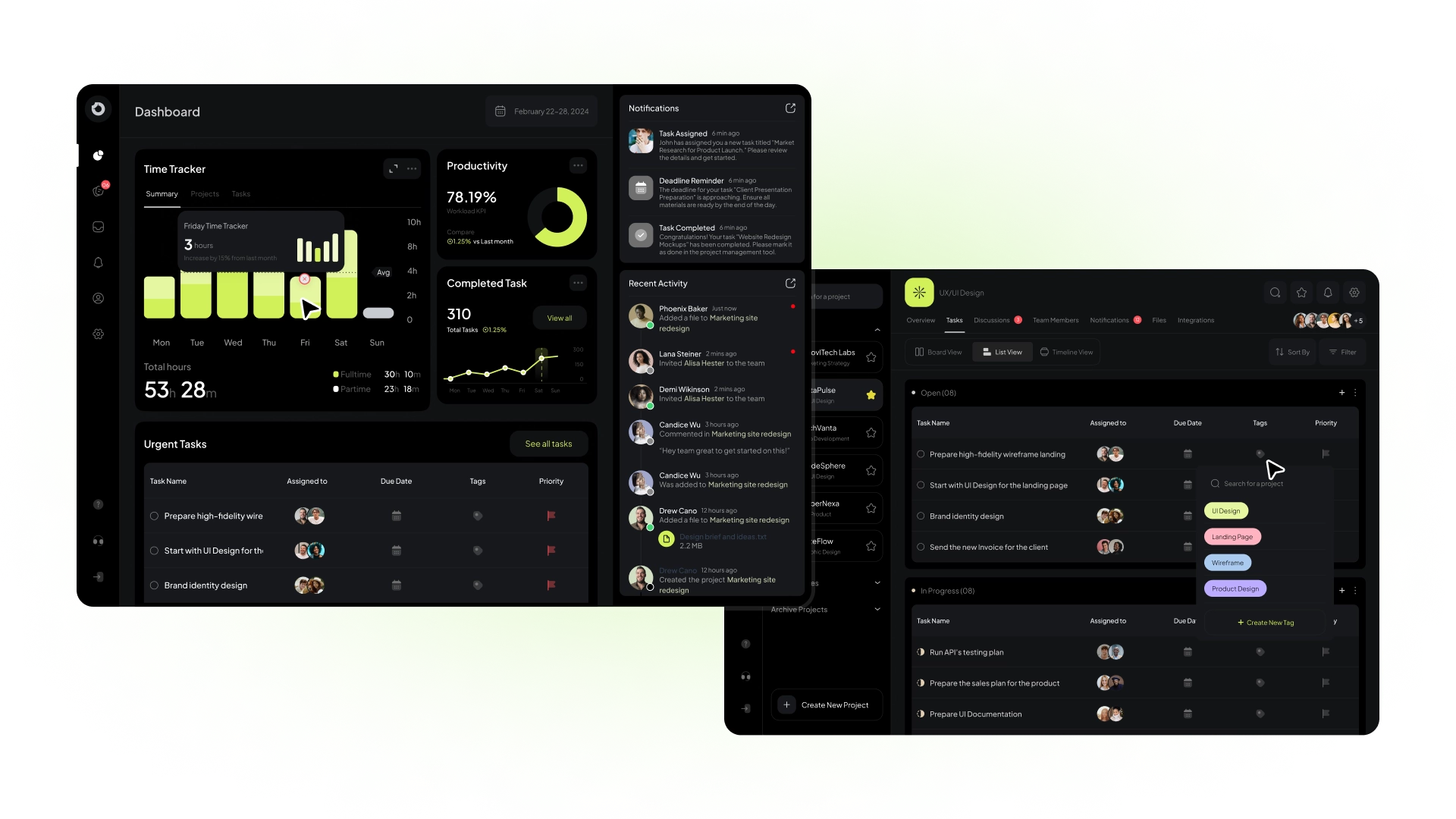
Development of CRM systems: main stages
Creating a CRM system for a construction business is a consistent process that requires careful consideration at each stage. The work begins with an analysis of the company's needs and ends with the launch of a finished product that fully meets the business's objectives. During development, attention is paid to every detail so that the system is convenient, functional, and meets the client's expectations.
In our company, the development of CRM for construction consists of 7 steps:
- Analysis of the market and customer requirements.
- Formation of technical specifications.
- Design and prototyping.
- Development of UI/UX design.
- Technical development on the server and client side.
- QA testing.
- Release and further development of the project.
Each of these stages is critical to creating a successful product. For example, qualitative analysis helps to identify real business needs and lay the foundation for development. Detailed design and prototyping help to minimize risks in the early stages of production, and testing ensures the stability and reliability of the system after release.
At AVADA MEDIA, we don’t just create CRM systems, we design and develop solutions that help our clients achieve ambitious business results:
- Optimize process management.
- Improve the quality of customer service.
- Increase sales and improve the company's profitability.
Our goal is to help your business work faster, more efficiently and more profitably. We strive to ensure that each developed CRM not only meets your current tasks, but also lays the foundation for the further development of the company.
Why is it worth starting cooperation with AVADA MEDIA
By collaborating with AVADA MEDIA, you get not just a developer, but a reliable technology partner who understands the specifics of your business and will help you achieve ambitious goals.
Our advantages:
- Expertise. Our staff consists of only experienced Middle and Senior level specialists with deep knowledge in the field of CRM system development and integration.
- Individual approach. We analyze your business processes and develop solutions that precisely match your tasks.
- Modern technologies. We use only proven and innovative tools to create reliable, productive and scalable systems.
- Comprehensive support. We do not just develop CRM, but also provide a full cycle of services - from implementation to regular updating and development of the product.
We believe that every company is unique, and our mission is to create a CRM system that will become your main competitive advantage. Still have doubts? Then get professional advice from our experts. To do this, fill out the feedback form or write to us directly by e-mail.
-
What is a CRM system for a construction company?
A CRM system is software that helps manage projects, clients, resources, and contractors. It automates processes, provides transparency in operations, and improves the efficiency of companies in the construction industry.
-
Can you customize my existing CRM?
Yes, in most cases we can integrate additional features or optimize your current CRM. However, in some situations it is more beneficial to create a system from scratch to better suit your needs.
-
How do you ensure data security in CRM?
We use modern security technologies such as data encryption, two-factor authentication and access control. All our solutions comply with international security standards such as GDPR. Therefore, you can be sure that your company’s data and that of its clients is completely safe.
-
How long does it take to develop a CRM?
The timeframe for creating a CRM depends on the complexity of the project, your individual requirements, and the number of integrations with other services. Typically, the development of such a project in our company takes several months, but if you want to launch the system as quickly as possible, we can offer an expansion of the development team.

















